Faculty:
SILVIA FEDERICI
ASTRIDA NEIMANIS
JUSSI PARIKKA
LAURA TRIPALDI
HELEN HESTER
BÁYÒ AKÓMOLÁFÉ
INSTITUTE OF QUEER ECOLOGY
COCO FUSCO
BARBARA SANTOS
LUCIANA PARISI
ASTRIDA NEIMANIS
JUSSI PARIKKA
LAURA TRIPALDI
HELEN HESTER
BÁYÒ AKÓMOLÁFÉ
INSTITUTE OF QUEER ECOLOGY
COCO FUSCO
BARBARA SANTOS
LUCIANA PARISI
Invited speakers:
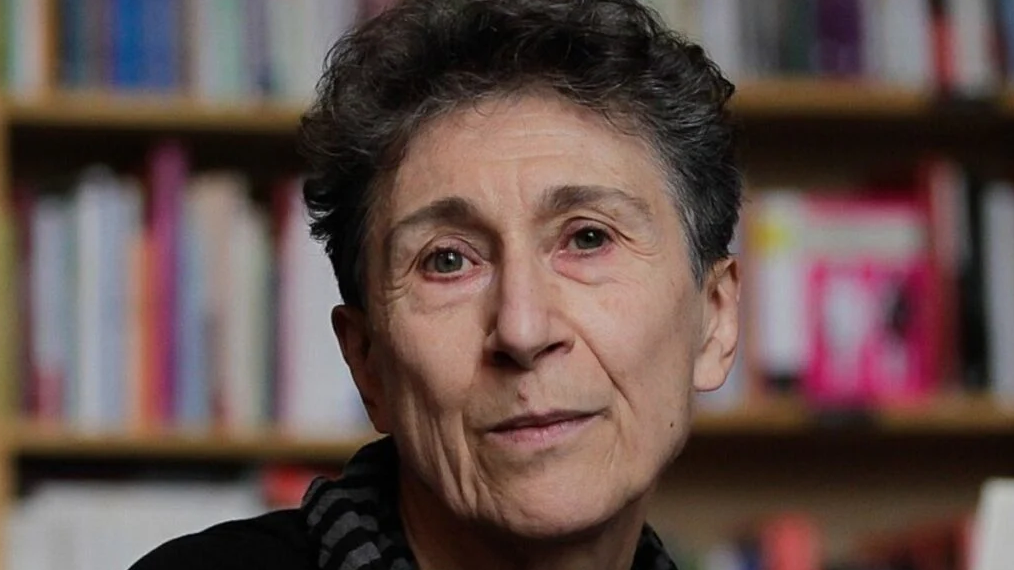
Silvia Federici
Silvia Federici is a feminist activist, writer, and a teacher. In 1972 she was one of the cofounders of the International Feminist Collective, the organization that launched the Wages For Housework campaign internationally. In the 1990s, after a period of teaching and research in Nigeria, she was active in the anti-globalization movement and the U.S. anti–death penalty movement. She is one of the co-founders of the Committee for Academic Freedom in Africa, an organization dedicated to generating support for the struggles of students and teachers in Africa against the structural adjustment of African economies and educational systems. From 1987 to 2005 she taught international studies, women studies, and political philosophy courses at Hofstra University in Hempstead, NY. All through these years she has written books and essays on philosophy and feminist theory, women’s history, education and culture, and more recently the worldwide struggle against capitalist globalization and for a feminist reconstruction of the commons.
Silvia Federici is a feminist activist, writer, and a teacher. In 1972 she was one of the cofounders of the International Feminist Collective, the organization that launched the Wages For Housework campaign internationally. In the 1990s, after a period of teaching and research in Nigeria, she was active in the anti-globalization movement and the U.S. anti–death penalty movement. She is one of the co-founders of the Committee for Academic Freedom in Africa, an organization dedicated to generating support for the struggles of students and teachers in Africa against the structural adjustment of African economies and educational systems. From 1987 to 2005 she taught international studies, women studies, and political philosophy courses at Hofstra University in Hempstead, NY. All through these years she has written books and essays on philosophy and feminist theory, women’s history, education and culture, and more recently the worldwide struggle against capitalist globalization and for a feminist reconstruction of the commons.

Astrida Neimanis
A key figure in the Environmental Humanities, Astrida Neimanis writes about water, weather, and bodies at the intersection of feminism and environmental crisis. Their formative book Bodies of Water: Posthuman Feminist Phenomenology (2017) is a study of the cultural and philosophical implications of water – the element that most intimately ties humans to their surroundings – recognising our bodies as being fundamentally part of the natural world. How to Weather Together: Feminist Practice for Climate Change, co-authored with longtime collaborator Jennifer Mae Hamilton, will be published in 2025. Neimanis is currently the director of The FEELed Lab and Canada Research Chair in Feminist Environmental Humanities at University of British Columbia Okanagan, on the unceded lands of the syilx people.
A key figure in the Environmental Humanities, Astrida Neimanis writes about water, weather, and bodies at the intersection of feminism and environmental crisis. Their formative book Bodies of Water: Posthuman Feminist Phenomenology (2017) is a study of the cultural and philosophical implications of water – the element that most intimately ties humans to their surroundings – recognising our bodies as being fundamentally part of the natural world. How to Weather Together: Feminist Practice for Climate Change, co-authored with longtime collaborator Jennifer Mae Hamilton, will be published in 2025. Neimanis is currently the director of The FEELed Lab and Canada Research Chair in Feminist Environmental Humanities at University of British Columbia Okanagan, on the unceded lands of the syilx people.
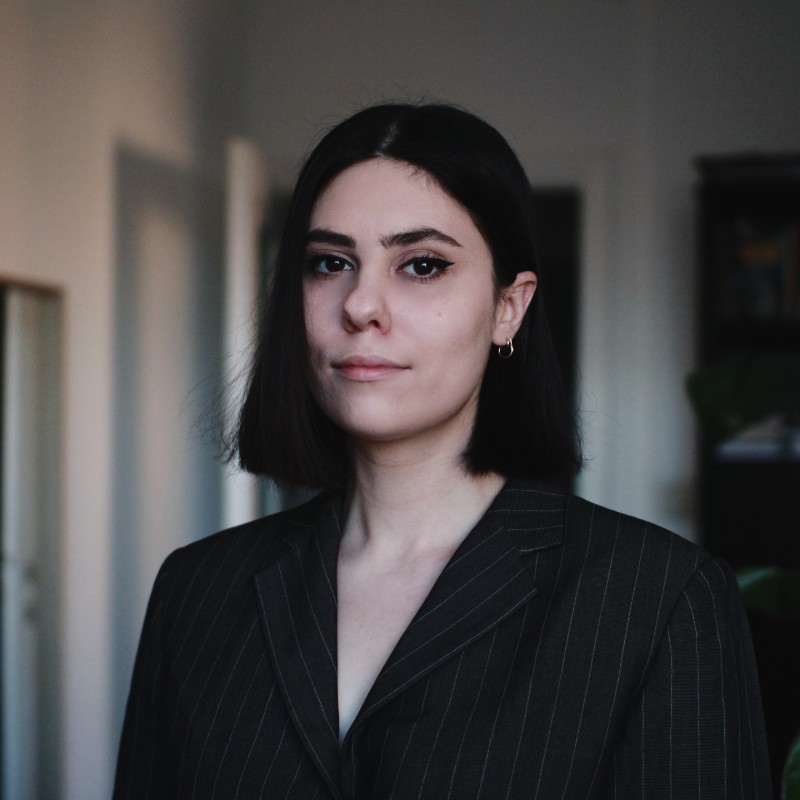
Laura Tripaldi
Laura Tripaldi is a writer and researcher working at the intersection of science, technology and contemporary humanities. Her research revolves around the notion of materiality in its cultural and political implications. After obtaining her PhD in Materials Science and Nanotechnology, she has taught courses, seminars, and workshops at several prestigious cultural and academic institutions worldwide. Her book Parallel Minds. Discovering the Intelligence of Materials was first published in 2020 and translated into multiple languages.
Laura Tripaldi is a writer and researcher working at the intersection of science, technology and contemporary humanities. Her research revolves around the notion of materiality in its cultural and political implications. After obtaining her PhD in Materials Science and Nanotechnology, she has taught courses, seminars, and workshops at several prestigious cultural and academic institutions worldwide. Her book Parallel Minds. Discovering the Intelligence of Materials was first published in 2020 and translated into multiple languages.

Jussi Parikka
Dr. Jussi Parikka is Professor in Digital Aesthetics and Culture at Aarhus University in Denmark where he directs the Digital Aesthetics Research Centre (DARC). He is also visiting professor at Winchester School of Art (University of Southampton) and at FAMU at the Academy of Performing Arts in Prague where he leads the project Operational Images and Visual Culture (2019-2023, funded by the Czech Science Foundation). In 2021 he was elected as member of Academia Europaea. His published books include Insect Media (2010), Digital Contagions (2007/2016), A Geology of Media (2015), and A Slow, Contemporary Violence (2016). Recently, he co-edited Photography Off the Scale (2021) and is the co-author of The Lab Book: Situated Practices in Media Studies (2022). His book Operational Images was published in May 2023. Parikka’s books have been translated into 11 languages including Japanese, Korean, Chinese, Czech, Italian, French, Spanish and Portuguese. He has also worked as curator, including as part of the curatorial team of transmediale 2023 and Helsinki Biennial 2023, as well as the co-curator of the forthcoming Motores del Clima (Laboral, Gijon, 2023).
Dr. Jussi Parikka is Professor in Digital Aesthetics and Culture at Aarhus University in Denmark where he directs the Digital Aesthetics Research Centre (DARC). He is also visiting professor at Winchester School of Art (University of Southampton) and at FAMU at the Academy of Performing Arts in Prague where he leads the project Operational Images and Visual Culture (2019-2023, funded by the Czech Science Foundation). In 2021 he was elected as member of Academia Europaea. His published books include Insect Media (2010), Digital Contagions (2007/2016), A Geology of Media (2015), and A Slow, Contemporary Violence (2016). Recently, he co-edited Photography Off the Scale (2021) and is the co-author of The Lab Book: Situated Practices in Media Studies (2022). His book Operational Images was published in May 2023. Parikka’s books have been translated into 11 languages including Japanese, Korean, Chinese, Czech, Italian, French, Spanish and Portuguese. He has also worked as curator, including as part of the curatorial team of transmediale 2023 and Helsinki Biennial 2023, as well as the co-curator of the forthcoming Motores del Clima (Laboral, Gijon, 2023).
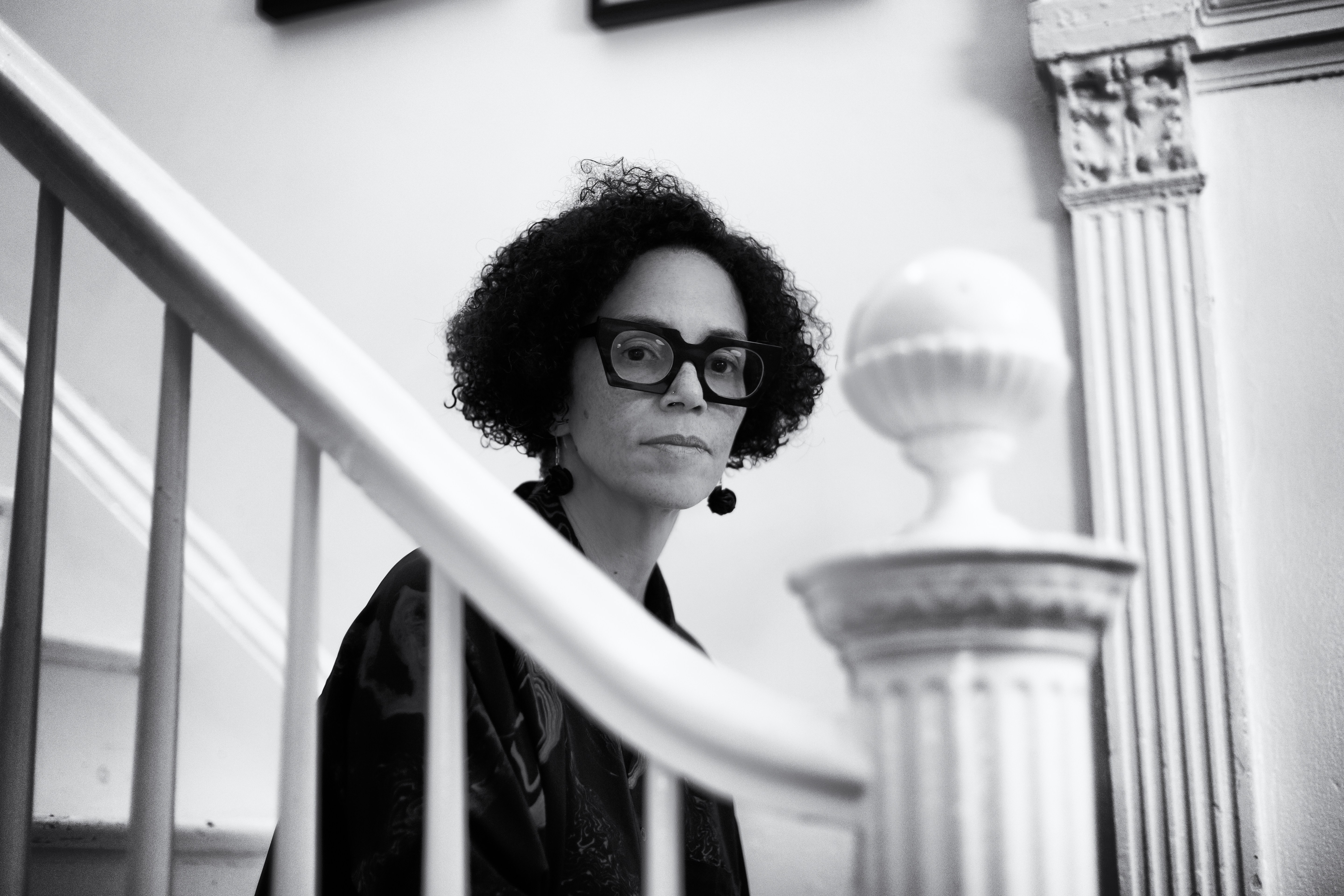
Coco Fusco
Coco Fusco is an interdisciplinary artist and writer. She is a recipient of numerous awards, including a Guggenheim fellowship, an American Academy of Arts and Letters Award, Latinx Art Award, a Fulbright fellowship and a Herb Alpert Award in the Arts. Her works are in the permanent collections of the Museum of Modern Art, The Art Institute of Chicago, The Walker Art Center, the Centre Pompidou, the Imperial War Museum, and the Museum of Contemporary Art of Barcelona. She is the author of four books and a Professor of Art at Cooper Union. Tomorrow I Will Become an Island, a solo retrospective of Fusco’s opened at Berlin’s KW Institute of Contemporary Art in 2023.
Coco Fusco is an interdisciplinary artist and writer. She is a recipient of numerous awards, including a Guggenheim fellowship, an American Academy of Arts and Letters Award, Latinx Art Award, a Fulbright fellowship and a Herb Alpert Award in the Arts. Her works are in the permanent collections of the Museum of Modern Art, The Art Institute of Chicago, The Walker Art Center, the Centre Pompidou, the Imperial War Museum, and the Museum of Contemporary Art of Barcelona. She is the author of four books and a Professor of Art at Cooper Union. Tomorrow I Will Become an Island, a solo retrospective of Fusco’s opened at Berlin’s KW Institute of Contemporary Art in 2023.
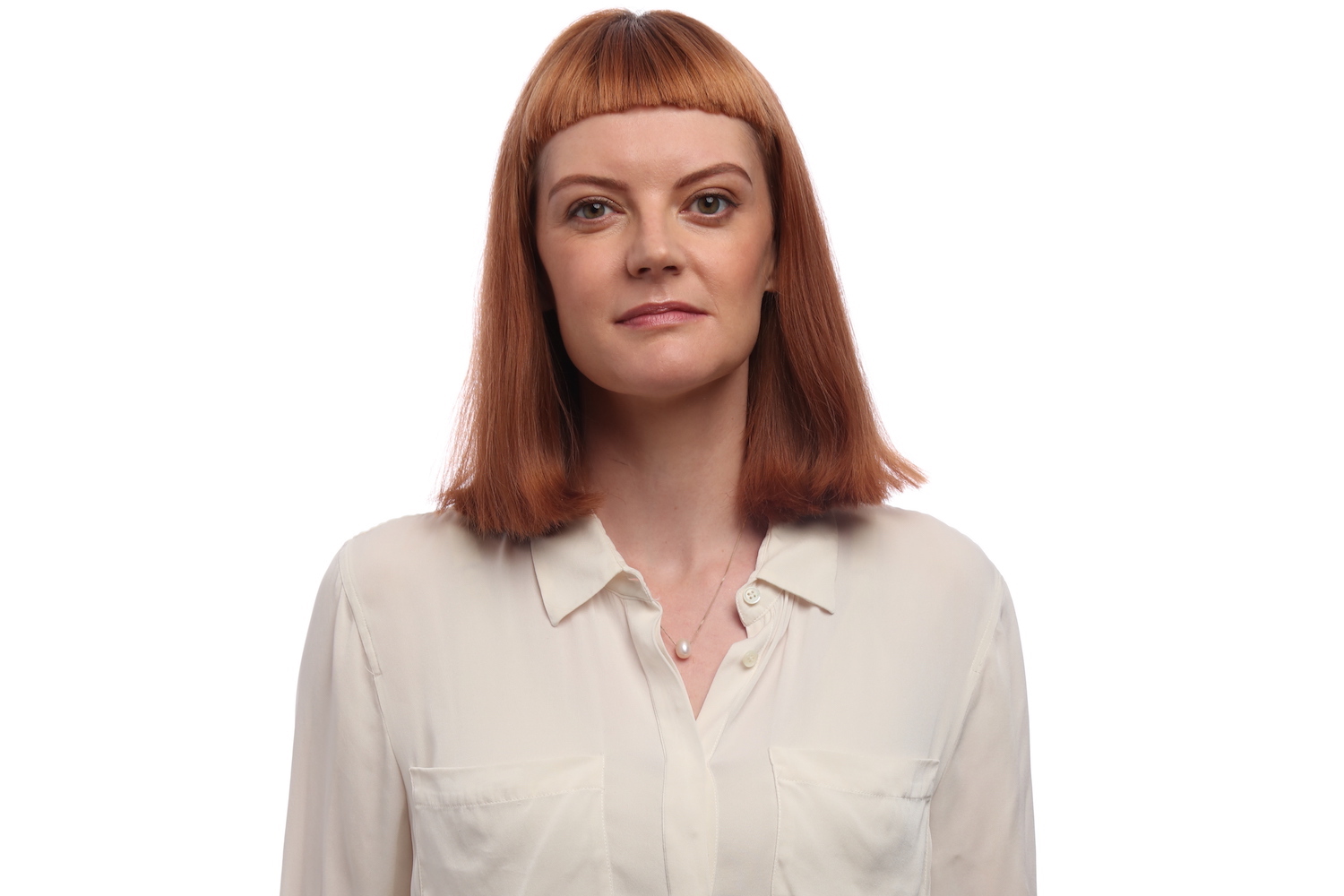
Helen Hester
Helen Hester (b. 1983, she/her) is Professor of Gender, Technology and Cultural Politics at the University of West London. Her research interests include technofeminism, sexuality studies, and theories of social reproduction. Her recent publications include: After Work: A History of the Home and the Fight for Free Time (with Nick Srnicek, Verso, 2023), Xenofeminism (Polity, 2018) and Beyond Explicit: Pornography and the Displacement of Sex (SUNY Press, 2014). Her latest book, Post-Work: What it is, why it matters, and how we get there (with Will Stronge) will be out with Bloomsbury later this year.
Helen Hester (b. 1983, she/her) is Professor of Gender, Technology and Cultural Politics at the University of West London. Her research interests include technofeminism, sexuality studies, and theories of social reproduction. Her recent publications include: After Work: A History of the Home and the Fight for Free Time (with Nick Srnicek, Verso, 2023), Xenofeminism (Polity, 2018) and Beyond Explicit: Pornography and the Displacement of Sex (SUNY Press, 2014). Her latest book, Post-Work: What it is, why it matters, and how we get there (with Will Stronge) will be out with Bloomsbury later this year.

Báyò Akómoláfé
Bayo Akomolafe (Ph.D.), rooted with the Yoruba people in a more-than-human world, is the father to Alethea Aanya and Kyah Jayden Abayomi, the grateful life-partner to Ije, son and brother. A widely celebrated international speaker, posthumanist thinker, poet, teacher, public intellectual, essayist, and author of two books, These Wilds Beyond our Fences: Letters to My Daughter on Humanity’s Search for Home (North Atlantic Books) and We Will Tell our Own Story: The Lions of Africa Speak, Bayo Akomolafe is the Founder of The Emergence Network, a planet-wide initiative that seeks to convene communities in new ways in response to the critical, civilizational challenges we face as a species. He is host of the postactivist course/festival/event, ‘We Will Dance with Mountains’. He currently lectures at Pacifica Graduate Institute, California. He sits on the Board of many organizations including Science and Non-Duality (US) and Ancient Futures (Australia). In July 2022, Dr. Akomolafe was appointed the inaugural Global Senior Fellow of University of California’s (Berkeley) Othering and Belonging Institute. He is also the inaugural Special Fellow of the Schumacher Centre for New Economics and the Inaugural Special Fellow for the Aspen Institute. He has been Fellow for The New Institute in Hamburg, Germany, and Visiting Critic-in-Residence for the Otis College of Art and Design, Los Angeles (2023). He is the recipient of an Honorary Doctorate from the California Institute of Integral Studies (CIIS) and has been Commencement Speaker in two universities convocation events. He is also the recipient of the New Thought Leadership Award 2021 and the Excellence in Ethnocultural Psychotherapy Award by the African Mental Health Summit 2022. In a ceremony in July 2023, the City of Portland (Maine, USA) awarded Dr. Akomolafe with the symbolic ‘Key to the City’ in recognition of his planet-wide work and achievements. Dr. Akomolafe is a Member of the Club of Rome, a Fellow for the Royal Society of Arts in the UK, and an Ambassador for the Wellbeing Economy Alliance.
Bayo Akomolafe (Ph.D.), rooted with the Yoruba people in a more-than-human world, is the father to Alethea Aanya and Kyah Jayden Abayomi, the grateful life-partner to Ije, son and brother. A widely celebrated international speaker, posthumanist thinker, poet, teacher, public intellectual, essayist, and author of two books, These Wilds Beyond our Fences: Letters to My Daughter on Humanity’s Search for Home (North Atlantic Books) and We Will Tell our Own Story: The Lions of Africa Speak, Bayo Akomolafe is the Founder of The Emergence Network, a planet-wide initiative that seeks to convene communities in new ways in response to the critical, civilizational challenges we face as a species. He is host of the postactivist course/festival/event, ‘We Will Dance with Mountains’. He currently lectures at Pacifica Graduate Institute, California. He sits on the Board of many organizations including Science and Non-Duality (US) and Ancient Futures (Australia). In July 2022, Dr. Akomolafe was appointed the inaugural Global Senior Fellow of University of California’s (Berkeley) Othering and Belonging Institute. He is also the inaugural Special Fellow of the Schumacher Centre for New Economics and the Inaugural Special Fellow for the Aspen Institute. He has been Fellow for The New Institute in Hamburg, Germany, and Visiting Critic-in-Residence for the Otis College of Art and Design, Los Angeles (2023). He is the recipient of an Honorary Doctorate from the California Institute of Integral Studies (CIIS) and has been Commencement Speaker in two universities convocation events. He is also the recipient of the New Thought Leadership Award 2021 and the Excellence in Ethnocultural Psychotherapy Award by the African Mental Health Summit 2022. In a ceremony in July 2023, the City of Portland (Maine, USA) awarded Dr. Akomolafe with the symbolic ‘Key to the City’ in recognition of his planet-wide work and achievements. Dr. Akomolafe is a Member of the Club of Rome, a Fellow for the Royal Society of Arts in the UK, and an Ambassador for the Wellbeing Economy Alliance.
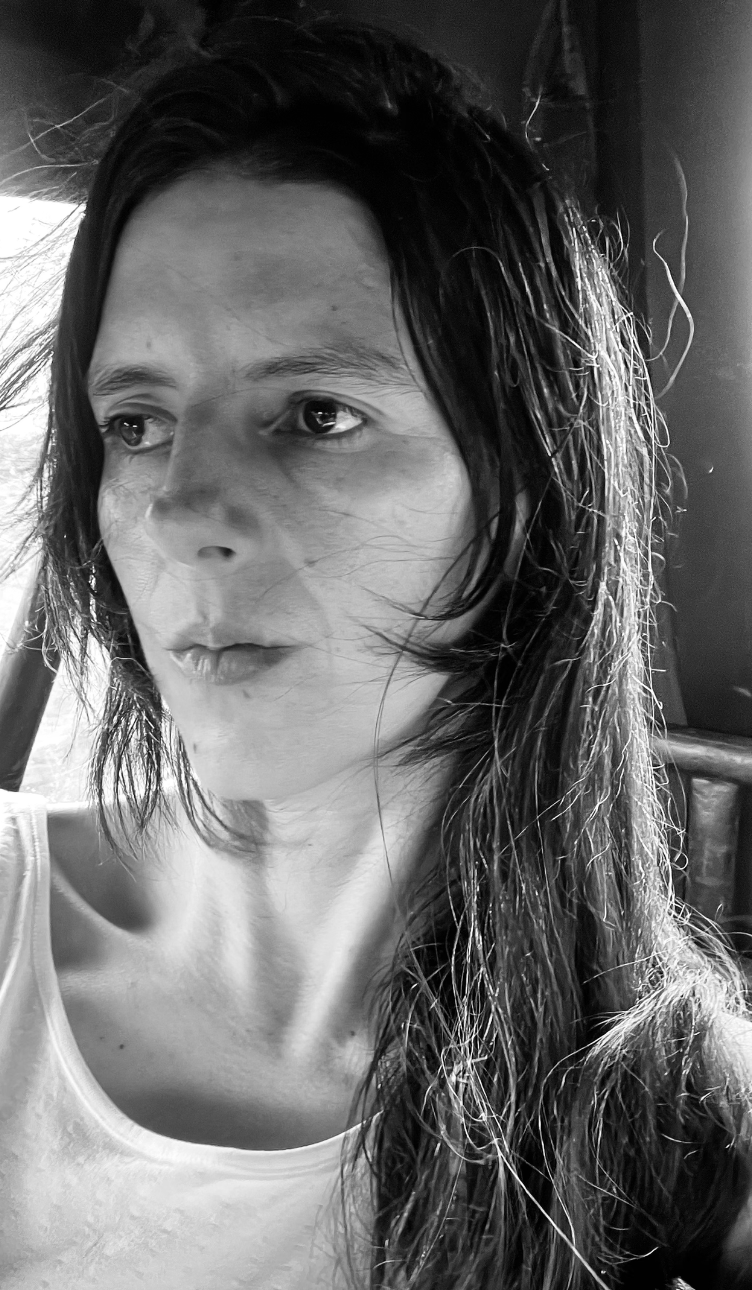
Barbara Santos
Barbara Santos (1977) is a visual artist and independent researcher. Her work focuses on making transformation processes visible using the conjunction between art and technology under the guidance of ancestral knowledge in the Amazon. She has significant experience in the jungles since 2005 in the Vaupés and Putumayo regions (Colombian Amazon) and is the author of the book ‘La curación como tecnología’ (Healing as Technology, idartes, 2019). Co-editor El libro Jaguares de Yuruparí (ACAIPI - GAIA, 2015) and Seed Mothers (ACAIPI 2024). Co-creator Bosquesinas campesinas online exhibit (Comuccom - UE 2021). Her long-term collective projects are interwoven with the intention of questioning traditional structures and contemporary art formats through the strengthening of aesthetic ruptures that can come from the encounters of complex cultures.
Barbara Santos (1977) is a visual artist and independent researcher. Her work focuses on making transformation processes visible using the conjunction between art and technology under the guidance of ancestral knowledge in the Amazon. She has significant experience in the jungles since 2005 in the Vaupés and Putumayo regions (Colombian Amazon) and is the author of the book ‘La curación como tecnología’ (Healing as Technology, idartes, 2019). Co-editor El libro Jaguares de Yuruparí (ACAIPI - GAIA, 2015) and Seed Mothers (ACAIPI 2024). Co-creator Bosquesinas campesinas online exhibit (Comuccom - UE 2021). Her long-term collective projects are interwoven with the intention of questioning traditional structures and contemporary art formats through the strengthening of aesthetic ruptures that can come from the encounters of complex cultures.
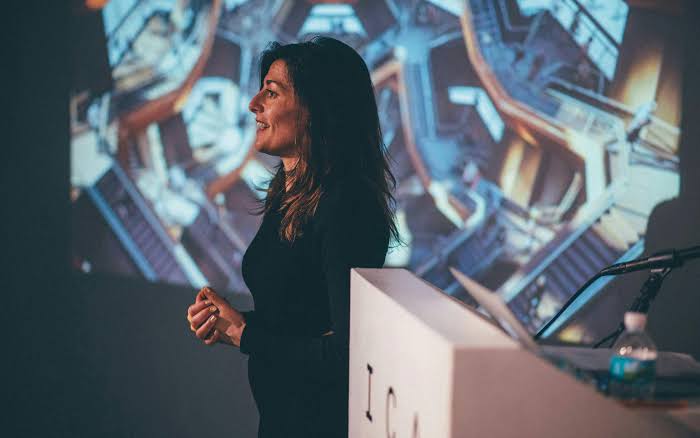
Luciana Parisi
Luciana Parisi is Reader in Cultural Studies and Director of the PhD programme at the Centre for Cultural Studies, Goldsmiths University of London. Her research focuses on philosophy and science to investigate potential conditions for ontological and epistemological change in culture, aesthetic and politics. Specifically engaging with cybernetics, information theories, and evolutionary theories, her work analyses the radical transformations of the body, nature, matter and thought led by the technocapitalist development of biotechnologies and computation. In 2004, she published Abstract Sex: Philosophy, Biotechnology and the Mutations of Desire (Continuum). She has also written within the field of media philosophy and analysed the bionic transformation of the perceptive sensorium triggered by digital media, the advancement of new techno-ecologies of control, and the nanoengineering of matter. She has published articles on the cybernetic re-wiring of memory and perception in the context of a non-phenomenological critique of computational media vis a vis strategies of branding and marketing. Her interest in interactive media has also led her research to engage more closely with computation, cognition, and algorithmic aesthetics. In 2013, she published Contagious Architecture. Computation, Aesthetics and the Control of Space (MIT Press).
Luciana Parisi is Reader in Cultural Studies and Director of the PhD programme at the Centre for Cultural Studies, Goldsmiths University of London. Her research focuses on philosophy and science to investigate potential conditions for ontological and epistemological change in culture, aesthetic and politics. Specifically engaging with cybernetics, information theories, and evolutionary theories, her work analyses the radical transformations of the body, nature, matter and thought led by the technocapitalist development of biotechnologies and computation. In 2004, she published Abstract Sex: Philosophy, Biotechnology and the Mutations of Desire (Continuum). She has also written within the field of media philosophy and analysed the bionic transformation of the perceptive sensorium triggered by digital media, the advancement of new techno-ecologies of control, and the nanoengineering of matter. She has published articles on the cybernetic re-wiring of memory and perception in the context of a non-phenomenological critique of computational media vis a vis strategies of branding and marketing. Her interest in interactive media has also led her research to engage more closely with computation, cognition, and algorithmic aesthetics. In 2013, she published Contagious Architecture. Computation, Aesthetics and the Control of Space (MIT Press).

The Institute of Queer Ecology
Lee Pivnik is a Miami-based artist, working predominantly in sculpture, video and social practice. In 2018 he graduated from the Rhode Island School of Design with a BFA in Sculpture and a concentration in Nature-Culture-Sustainability Studies, and in 2022 he attended the Immersion Program at The School of Architecture (TSOA) at Arcosanti. Nic Baird is a biologist, artist, writer, and dancer living in New York City. Baird served as co-director for the Institute of Queer Ecology since 2017 and is currently working on a doctorate in paleobiology.
In 2017 Pivnik started the Institute of Queer Ecology, a collaborative organism that works to imagine and realize an equitable multispecies future. He has continued to run the project alongside artist and evolutionary biologist Nicolas Baird. IQECO builds on the theoretical framework of Queer Ecology, an adaptive practice concerned with interconnectivity, intimacy, and multispecies relationality. Guided by queer and feminist theory and decolonial thinking, they work to undo dangerously destructive human-centric hierarchies—or even flip them—to look at the critical importance of things happening invisibly; underground and out of sight.
To date, the Institute of Queer Ecology has worked with over 120 different artists to present interdisciplinary programming that oscillates between curating exhibitions and directly producing artworks/projects. IQECO has presented projects with the Guggenheim Museum (New York, NY), the Institute of Contemporary Art (Miami, Florida), the Julia Stoschek Collection (Düsseldorf, Germany), the Medellín Museum of Modern Art (Medellín, Colombia), the Museum of Contemporary Art Belgrade (Serbia), ASAKUSA (Tokyo, Japan), the Biennale of Sydney (Australia), Prairie (Chicago, IL), Bas Fisher Invitational (Miami, FL) Gas Gallery (Los Angeles, CA), and Vox Populi (Philadelphia, PA), among others.
Lee Pivnik is a Miami-based artist, working predominantly in sculpture, video and social practice. In 2018 he graduated from the Rhode Island School of Design with a BFA in Sculpture and a concentration in Nature-Culture-Sustainability Studies, and in 2022 he attended the Immersion Program at The School of Architecture (TSOA) at Arcosanti. Nic Baird is a biologist, artist, writer, and dancer living in New York City. Baird served as co-director for the Institute of Queer Ecology since 2017 and is currently working on a doctorate in paleobiology.
In 2017 Pivnik started the Institute of Queer Ecology, a collaborative organism that works to imagine and realize an equitable multispecies future. He has continued to run the project alongside artist and evolutionary biologist Nicolas Baird. IQECO builds on the theoretical framework of Queer Ecology, an adaptive practice concerned with interconnectivity, intimacy, and multispecies relationality. Guided by queer and feminist theory and decolonial thinking, they work to undo dangerously destructive human-centric hierarchies—or even flip them—to look at the critical importance of things happening invisibly; underground and out of sight.
To date, the Institute of Queer Ecology has worked with over 120 different artists to present interdisciplinary programming that oscillates between curating exhibitions and directly producing artworks/projects. IQECO has presented projects with the Guggenheim Museum (New York, NY), the Institute of Contemporary Art (Miami, Florida), the Julia Stoschek Collection (Düsseldorf, Germany), the Medellín Museum of Modern Art (Medellín, Colombia), the Museum of Contemporary Art Belgrade (Serbia), ASAKUSA (Tokyo, Japan), the Biennale of Sydney (Australia), Prairie (Chicago, IL), Bas Fisher Invitational (Miami, FL) Gas Gallery (Los Angeles, CA), and Vox Populi (Philadelphia, PA), among others.
Institute for
Postnatural Studies
faculty members:

Gabriel Alonso
Based and born in Madrid, Gabriel Alonso is a visual artist and researcher formed between the ETSAM (Madrid), the Technische Universität (Berlin), and Columbia University in New York at the MS-CCCP, where he graduated with honors with his research thesis An Archaeology of Containment. In his works, through various formats such as installation, sculpture, photography or video, he investigates contemporary relationships between fiction and materiality, in order to blur binomials between the natural and the artificial, the human and the non-human, understanding nature as a complex cultural construct. Represented by Pradiauto Gallery (Madrid), his work has been exhibited in different galleries and international exhibitions, such as Nordés Galería (Santiago de Compostela), CaixaForum (Barcelona), La Casa Encendida (Madrid), CA2M (Madrid), Centro-Centro (Madrid), Fundación La Caixa (Barcelona), Matadero (Madrid), John Doe Gallery (New York), IIAF (New York), Poor Media Leuven (Belgium), Mila Gallery (Berlin) among others. He has been assistant professor at Barnard College of the University of Columbia (NYC) and at the Master of Advanced Architecture of the ETSAM, and has given many lectures, talks and workshops in different international institutions, museums and universities. In 2020, he received the Creation Grant from the Madrid City Council, and in 2016 he received the FAD award for his publication Desierto and was awarded one of the prestigious grants from the Graham Foundation for the Fine Arts. In 2020, he founded the Institute for Postnatural Studies. In parallel to his academic experimentation, research and curatorial practice, he develops an editorial practice through the platform Cthulhu books.
Based and born in Madrid, Gabriel Alonso is a visual artist and researcher formed between the ETSAM (Madrid), the Technische Universität (Berlin), and Columbia University in New York at the MS-CCCP, where he graduated with honors with his research thesis An Archaeology of Containment. In his works, through various formats such as installation, sculpture, photography or video, he investigates contemporary relationships between fiction and materiality, in order to blur binomials between the natural and the artificial, the human and the non-human, understanding nature as a complex cultural construct. Represented by Pradiauto Gallery (Madrid), his work has been exhibited in different galleries and international exhibitions, such as Nordés Galería (Santiago de Compostela), CaixaForum (Barcelona), La Casa Encendida (Madrid), CA2M (Madrid), Centro-Centro (Madrid), Fundación La Caixa (Barcelona), Matadero (Madrid), John Doe Gallery (New York), IIAF (New York), Poor Media Leuven (Belgium), Mila Gallery (Berlin) among others. He has been assistant professor at Barnard College of the University of Columbia (NYC) and at the Master of Advanced Architecture of the ETSAM, and has given many lectures, talks and workshops in different international institutions, museums and universities. In 2020, he received the Creation Grant from the Madrid City Council, and in 2016 he received the FAD award for his publication Desierto and was awarded one of the prestigious grants from the Graham Foundation for the Fine Arts. In 2020, he founded the Institute for Postnatural Studies. In parallel to his academic experimentation, research and curatorial practice, he develops an editorial practice through the platform Cthulhu books.

Yuri Tuma
Yuri Tuma is a multidisciplinary Brazilian artist who focuses on the investigation of contemporary narratives related to diverse ecologies through sound art, installation, and performance as a way to address and reevaluate the human/animal binomial imposed by science and Western thinking. More actively, in addition to academic programming and development, he coordinates the Institute's publishing project, Cthulhu Books, to become a showcase for the political potential of imagining new worlds and possible futures for the planet through academic and artistic research. Starting in 2021, in addition to participating in residencies and coordinating workshops around interspecies thinking, Tuma works with educational and mediation programs through sound art and performance at Spanish institutions such as Museo Nacional Centro de Arte Reina Sofía, Matadero, La Casa Encendida, INLAND, among others.
Yuri Tuma is a multidisciplinary Brazilian artist who focuses on the investigation of contemporary narratives related to diverse ecologies through sound art, installation, and performance as a way to address and reevaluate the human/animal binomial imposed by science and Western thinking. More actively, in addition to academic programming and development, he coordinates the Institute's publishing project, Cthulhu Books, to become a showcase for the political potential of imagining new worlds and possible futures for the planet through academic and artistic research. Starting in 2021, in addition to participating in residencies and coordinating workshops around interspecies thinking, Tuma works with educational and mediation programs through sound art and performance at Spanish institutions such as Museo Nacional Centro de Arte Reina Sofía, Matadero, La Casa Encendida, INLAND, among others.

Carmen Lael HinesCarmen Lael Hines is a new media theorist, writer and curator working at the interface of architecture and contemporary art. From 2020– 2024 she taught in the Department of Visual Cultures at the Vienna University of Technology, and is pursuing a PhD in philosophy at the Academy of Fine Arts, Vienna. Her recent work engages: AI generated pornography, houseplants, femtech and platform urbanism. She focuses on the nodal points where technology/media, gender/sexuality studies and the political economy meet.